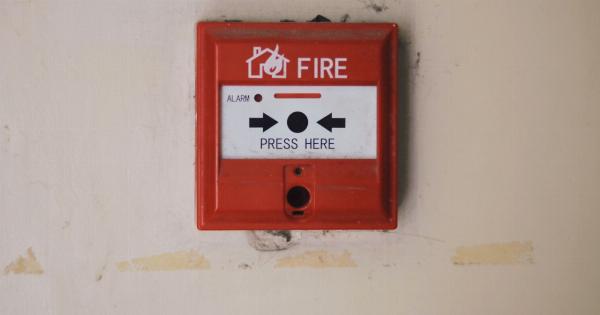In today’s fast-paced world, it is becoming increasingly important to understand the factors that contribute to societal decline.
While some sources of decline are widely recognized and discussed, there are numerous stealthy sources that often go unnoticed. These hidden factors slowly chip away at the foundations of society, leading to long-term consequences that can be devastating. In this article, we will explore some of these stealthy sources of our decline.
Inequality: The Great Divide
One of the most significant stealthy sources of decline is inequality. Although the gap between the rich and the poor has always existed, it has increased exponentially in recent decades.
This growing inequality breeds resentment, erodes social cohesion, and leads to political instability. When a significant portion of society feels ignored and excluded from economic progress, it creates a breeding ground for various social and economic problems.
Corruption: Undermining Trust
Corruption is another stealthy source that eats away at the fabric of society. Whether it’s bribery, embezzlement, or nepotism, corruption undermines trust in public institutions and hinders economic growth.
When citizens lose faith in their government and institutions, it can lead to a breakdown in social order and the rule of law. Corruption not only diverts resources away from public welfare but also erodes the trust that is essential for a functioning society.
Environmental Degradation: The Invisible Crisis
While the consequences of environmental degradation are becoming more apparent, the sources are often overlooked.
Pollution, deforestation, and unsustainable practices silently degrade our ecosystems, threatening biodiversity, human health, and the overall stability of the planet. The decline of our environment not only poses immediate risks but also has long-term consequences that can significantly impact future generations.
Technological Dependence: The Silent Addiction
Technology, while offering numerous benefits, has also become a stealthy source of decline. The widespread dependence on technology has resulted in numerous side effects, such as decreased physical activity, social isolation, and the erosion of privacy.
Additionally, the rapid advancement of automation and artificial intelligence raises concerns about job displacement and economic inequality. Our addiction to technology may lead to unintended consequences that impact our societal well-being.
Crisis of Values: Losing Our Moral Compass
A decline in moral values is another stealthy source that contributes to societal decline. As societies become more individualistic and materialistic, values such as empathy, integrity, and respect for others often take a backseat.
This erosion of ethical values can lead to a degradation of social relationships, an increase in crime rates, and a lack of collective responsibility. Without a strong moral compass, societies struggle to navigate the challenges they face.
Mental Health Crisis: Unseen Suffering
While mental health is gaining more recognition, the scale of the crisis often remains hidden. The pressures of modern life, including societal expectations, economic stress, and social media influence, contribute to a rise in mental health issues.
Depression, anxiety, and loneliness silently affect individuals and society at large. The impact on productivity, relationships, and overall well-being cannot be understated, making this a stealthy source that needs urgent attention.
Erosion of Education: Weakening Foundations
An often-neglected stealthy source of decline is the erosion of education. While access to education has improved in many parts of the world, the quality and relevance of education are declining.
A lack of focus on critical thinking, creativity, and problem-solving skills hampers the ability of individuals and societies to adapt and thrive. The erosion of education weakens the foundations upon which progress and innovation are built.
Fragmentation of Communities: Breaking Social Bonds
Close-knit communities are essential for social cohesion and a sense of belonging. However, the fragmentation of communities is a subtle source of decline that often goes unnoticed.
Factors such as urbanization, individualism, and the breakdown of traditional social networks contribute to the weakening of community bonds. With less social support and connection, individuals become more vulnerable to isolation, mental health issues, and a loss of collective identity.
Consumerism: Chasing Happiness in Materialism
Consumerism, driven by advertising and a culture of excess, has become a stealthy source of decline. The relentless pursuit of material possessions and instant gratification can lead to personal debt, environmental degradation, and a sense of emptiness.
As societies place more value on material wealth and possessions, the pursuit of true happiness and contentment takes a backseat, fueling dissatisfaction and contributing to societal decline.
Lack of Civic Engagement: Fading Democracy
A lack of civic engagement is another stealthy source that weakens democratic societies. When individuals disengage from the political process, it opens the door for corruption, authoritarianism, and the erosion of civil liberties.
Apathy and disillusionment prevent citizens from actively participating in decision-making processes, allowing a small minority to exert undue influence. The vibrancy of a democracy relies on an engaged citizenry, making this decline especially concerning.
Conclusion
While some sources of societal decline are evident and actively discussed, the stealthy sources highlighted in this article often fly under the radar.
Inequality, corruption, environmental degradation, technological dependence, a crisis of values, mental health issues, erosion of education, fragmentation of communities, consumerism, and a lack of civic engagement are all stealthy factors that contribute to our decline. Recognizing and addressing these hidden sources is essential for building a more sustainable and resilient future.






























